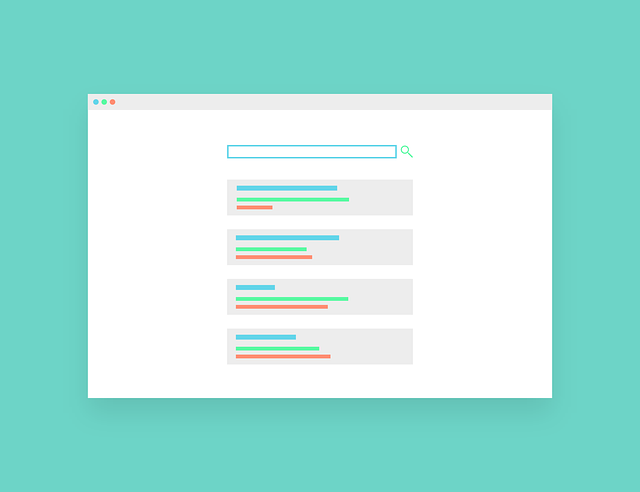On-page SEO boosts website visibility and search rankings through keyword research, content optimization, and metadata management. Strategically placing keywords improves readability and signals search engines about page relevance. Title tags, meta descriptions, headers, and loading speed enhancements are key strategies to Improve Organic Search Rankings. Mobile optimization is crucial for a successful online presence in today's digital era.
Boosting your website’s visibility online starts with mastering On-Page SEO. By optimizing key elements on each page, you can significantly improve your site’s Improve Organic Search Rankings. This article guides you through essential strategies, from understanding foundational principles to leveraging powerful tools like keyword research and mobile optimization. By implementing these tactics effectively, you’ll enhance your search engine visibility and attract more organic traffic.
Understand Basic On-Page SEO Principles

On-Page SEO is a fundamental strategy to enhance your website’s visibility and improve organic search rankings. It involves optimizing individual web pages to ensure they align with search engine algorithms, ultimately driving more relevant traffic to your site. By understanding basic principles like keyword research, content optimization, and metadata management, you can create powerful, search-engine-friendly pages.
Focusing on these aspects helps search engines comprehend the relevance of your content, leading to higher placements in search results. When implementing On-Page SEO, remember that keywords should be strategically placed within headings, subheadings, and body text, enhancing readability while signaling to search algorithms the topic’s significance.
Conduct Thorough Keyword Research

Keyword research is a fundamental step in optimizing your on-page SEO strategy for better rankings and improved organic search visibility. It involves understanding what terms your target audience uses to search for products, services, or information related to your business. By identifying relevant keywords with high search volume and low competition, you can tailor your content to align with user intent, making it more likely to rank higher in search engine results pages (SERPs).
Using tools like Google Keyword Planner, SEMrush, or Ahrefs, analyze search trends, uncover long-tail keywords, and assess the difficulty of ranking for specific terms. Incorporate these insights into your content creation process, ensuring that your web pages are optimized with targeted keywords strategically placed in titles, headings, meta descriptions, and throughout the body text. This approach not only enhances your site’s relevance to search engines but also provides a more user-friendly experience, driving better rankings over time.
Optimize Title Tags Effectively

Title tags play a pivotal role in improving organic search rankings. They are one of the first things search engines look at when crawling a webpage, so crafting them effectively is essential. When optimizing your title tags, make sure they’re unique and accurately reflect the content on the page while incorporating relevant keywords naturally. Keep them concise—ideally under 60 characters—to ensure they display fully in search results.
A well-optimized title tag not only attracts clicks but also signals to search engines what your page is about. This helps in aligning your content with user intent, which is a critical factor for Google and other search engines. By doing so, you increase the chances of your website ranking higher for relevant keywords, driving more organic traffic to your site.
Craft Compelling Meta Descriptions

Crafting compelling meta descriptions is a powerful strategy to improve organic search rankings. These concise snippets of text appear below your URL in search engine results pages (SERPs), offering a quick glimpse into what users can expect from clicking through. By incorporating relevant keywords and creating content that entices users, you can significantly enhance your website’s visibility and click-through rates.
Effective meta descriptions not only optimize for SEO but also serve as a sales pitch to potential visitors. They should accurately reflect the content of the page while incorporating keywords naturally and coherently. This balance ensures both search engines and users find value in your metadata, leading to better engagement and, ultimately, improved rankings.
Enhance Page Content with Keywords

To improve organic search rankings, enhancing page content with carefully selected keywords is paramount. Start by researching and incorporating relevant, high-volume keywords that accurately describe your page’s focus. This strategy ensures your content resonates with search engine algorithms and user queries.
Each section of your webpage should be packed with meaningful text that includes these keywords naturally. From headings to meta descriptions and body copy, the consistent use of targeted terms signals to search engines that your site is authoritative on the topic. This strategic approach not only boosts visibility but also enhances user experience by providing valuable, keyword-rich content that addresses their information needs.
Utilize Header Tags Strategically

Using header tags strategically is a key component in improving organic search rankings. Optimize your page by assigning headings (H1-H6) to different sections, ensuring each heading is unique and descriptive. The H1 tag should represent the main topic of your content, while subsequent headers (H2, H3, etc.) break down subtopics, providing a clear hierarchy for both users and search engines.
This structured approach helps search algorithms understand the context and relevance of your content, leading to better indexing and increased visibility in search results. By incorporating relevant keywords into these headers, you further reinforce the topic’s significance, making it easier for potential visitors to locate your page through targeted searches.
Improve Website Loading Speed

Improving your website’s loading speed is a powerful strategy to enhance user experience and Improve Organic Search Rankings. In today’s digital era, fast-loading websites are expected, and Google prioritizes them in search results. Optimizing your site’s performance involves compressing images, leveraging browser caching, and reducing HTTP requests. These techniques not only make your website faster but also signal to search engines that your content is valuable and easily accessible.
A quick website doesn’t just benefit visitors; it’s a crucial factor for search engine algorithms. By ensuring your pages load promptly, you can increase time users spend on your site, reduce bounce rates, and improve overall engagement. This, in turn, boosts your search engine rankings, making your website more visible and attractive to potential customers.
Ensure Mobile Optimization

In today’s digital era, mobile optimization is no longer an option but a necessity for any website aiming to improve organic search rankings. With a majority of users accessing the internet via their smartphones and tablets, search engines prioritize websites that offer seamless experiences on all devices. Mobile-friendly design ensures your site loads quickly, is easy to navigate, and provides valuable content without frustrating visitors who may abandon your site for a competitor’s more optimized one.
Implementing responsive web design, where your website adjusts dynamically to different screen sizes, is a proven strategy. Additionally, optimizing for mobile includes ensuring clear call-to-actions, reducing page load times, and enhancing site structure for easy navigation. These practices not only contribute to better rankings but also foster higher user engagement and retention, creating a positive feedback loop that drives continued success in search engine results pages.
